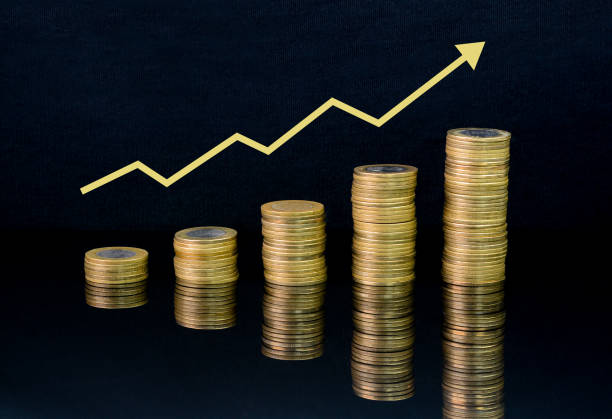Inflation occurs when the price of goods and services increases, whereas deflation occurs when the price of goods and services decreases. Inflation and deflation are polar opposites of one another.
As a result of inflation & deflation, the economy can suddenly swing from one state to the other, making it vital to maintain a balance between these two economic circumstances. The Reserve Bank of India monitors price fluctuations and manages deflation or inflation by performing monetary policy, such as determining India’s interest rates.
WHAT EXACTLY IS INFLATION?
Inflation is the rate of growth in the prices of goods and services. Frequently, inflation impacts the purchasing power of customers. To maintain the efficiency of their individual economies, the majority of central banks attempt to minimize inflation. There are both advantages and downsides associated with inflation.
Inflation refers to the rise in the prices of everyday goods and services, including food, housing, clothes, transportation, entertainment, consumer staples, etc. Measurement of inflation is based on the average price change of a basket of goods and services over a period of time. In India, inflation is calculated by the Ministry of Statistics and Programme Implementation.
A simple illustration would be if a kilogram of apples costs Rs. 100 in 2019 and Rs. 110 in 2020, then there would be a 10% rise in the price of a kilogram of apples. Similarly, various items and services whose prices have increased over time are grouped together, and the percentage is determined using a base year. The rate of inflation is the percentage increase in the prices of a set of goods.
THE CAUSES
Money Supply
An economy’s excessive money supply is one of the key causes of inflation. This occurs when a nation’s money supply/circulation rises faster than its economic growth, hence decreasing the value of its currency.
In the current day, nations no longer determine the value of their currency based on the quantity of gold they own. Modern techniques of currency valuation are defined by the quantity of currency in circulation, followed by the public’s opinion of that currency’s value.
National Debt
The national debt is influenced by a variety of factors, including the nation’s borrowing and expenditure. In the event of a rise in a country’s debt, the nation has two options:
- An increase in internal taxation is an option.
- To settle the debt, more currency might be produced.
Demand-Pull Effect
The demand-pull effect implies that when wages rise in a rising economy, people will have more disposable income to spend on products and services. In order to maintain a balance between supply and demand, corporations will raise consumer-supportable pricing in response to a rise in demand for products and services.
Cost-Push Effect
According to this ideology, when corporations confront rising input costs for raw materials and salaries in the manufacture of consumer goods, they will maintain profitability by passing on the increased production costs to the final customer.
Exchange Rates
An economy dependent on international markets operates mostly on the basis of the dollar’s worth. In a global economy based on trade, exchange rates have a significant role in influencing the rate of inflation.
THE AFTERMATH EFFECTS
When there is inflation in a country, people’s buying power drops because the prices of goods and services are high. The fall in the value of the currency unit affects the cost of living in the country. When the inflation rate is high, the cost of living likewise rises, resulting in a slowing of economic growth.
On the other hand, an inflation rate in the healthy range of 2–3 percent is seen as a positive indicator since it leads directly to higher salaries and the profitability of businesses, and it helps keep capital moving in an economy that is expanding.

“OFFSETTING” INFLATION
Inflation must always be taken into account as part of the planning process for one’s finances. The issue is, how much money will you in fact require once you enter retirement? Keeping an eye on inflation while you pursue your retirement goals will help you secure your financial future.
Long-Term Investments
When it comes to assets with a long-term horizon, investing money in investments right now might position you to reap the benefits of inflation in the years to come.
Save More
The amount of money needed for retirement is often underestimated. You may either save more money or invest more aggressively in order to reach your retirement goals.
Balance Your Investments
Investing just in bonds may make you feel more secure, but you should still diversify your holdings. If you want to beat inflation, you shouldn’t put all of your money into one investment.













